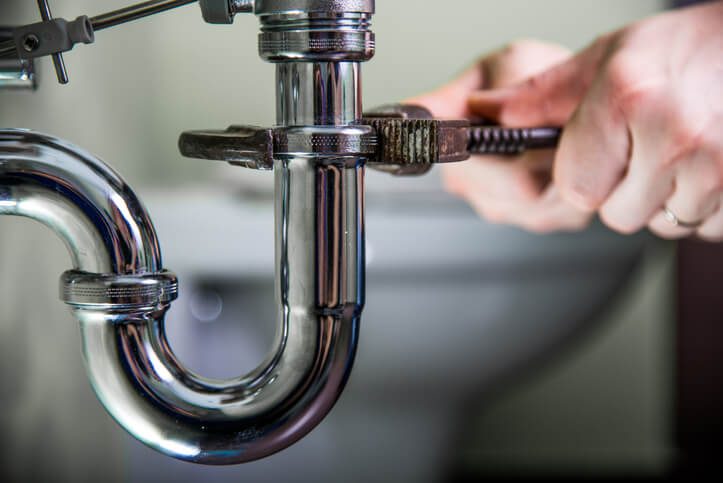Maintaining your plumbing system is necessary for the longevity of function and lifespan. Every aspect of the plumbing system, such as pipes, water heaters, and drains, can be maintained, but our Gainesville plumbers often meet homeowners who are unaware that these components need maintenance or how to go about caring for them. For anyone who may be in over their head when it comes to plumbing or could use a reminder, our plumbers in Gainesville at Quality Plumbing of Gainesville Inc. share five expert tips that you can utilize in order to care for your plumbing system.
Reduce Water Pressure
Water pressure directly indicates how hard the entire plumbing system has to work. Water forcefully surges through pipes and puts stress on the joints, faucets, and valves. After time, this stress reduces the lifespan of your plumbing. The water pressure can be measured by attaching a hose bib gauge (available at your local hardware store for less than $10) to an outside spigot. Look for water pressure that falls between 40–85 psi, which is considered to be in the normal range. If the hose bib gauge provides a pressure that is higher than 85 psi, one of our plumbers can install a pressure reducer.
Avoid Chemicals
We’ve all seen the products that advertise abilities to clear a clogged drain. Whether or not these products can dissolve or push along a clog through a pipe is not what matters. What matters is that these harsh chemical solutions can eat away at drainpipes. Also, just one application of the drain-clearing product may not be enough to effectively remove the clog — so using more chemicals can equate to more damage. Cast-iron pipes are eroded each time a drain-clearing product is poured down the drain. Erosion eventually leads to leaks, which means plumbing repairs. So, avoid using chemicals to clear clogs and either hire a Gainesville plumber for services to remove the clog or do it yourself with a plunger or drain snake.
Use A Water Softener
Hard water is dangerous to a plumbing system. Water that contains a lot of minerals, such as magnesium or calcium, will build-up within pipes. Hard water buildup directly restricts the flow of water, which increases the pressure of the water (and remember, high pressure stresses the system). Additionally, hard water will eventually cause corrosion on joints and/or fittings. Overall, hard water shortens the lifespan of your plumbing system. Luckily for your plumbing, hard water can be softened through the installation and use of a water softener — but don’t settle for just any water softener. Check out a salt-free water softening system for an eco-friendly option.
Use Mesh Drain Covers
A mesh drain cover can be laid over the drain to act as a catch-all. A pack of mesh drain covers is an inexpensive way to safeguard your pipes. As the drain cover collects debris, empty the contents into the garbage and replace the cover over the drain. If the drain covers get grimy, they can be cleaned with a mixture of warm vinegar and baking soda. Feel free to pour the mixture through the cover and allow it to go down the drain — this is a great do-it-yourself drain cleaner!
Prevent Clogs
Hopefully, you already know how important it is to prevent clogs. By preventing a clog, you’re saving yourself and your pipes from unneeded stress. Refrain from pouring, rinsing or flushing any of the following items down a drain:
- Feminine hygiene products
- Disposable baby diapers
- Flushable towelettes
- Cotton swabs
- Paper towels
- Cotton balls
- Dryer sheets
- Baby wipes
- Kitty litter
- Condoms
- Grease
- Hair
- Food
- Fats
- Oils
